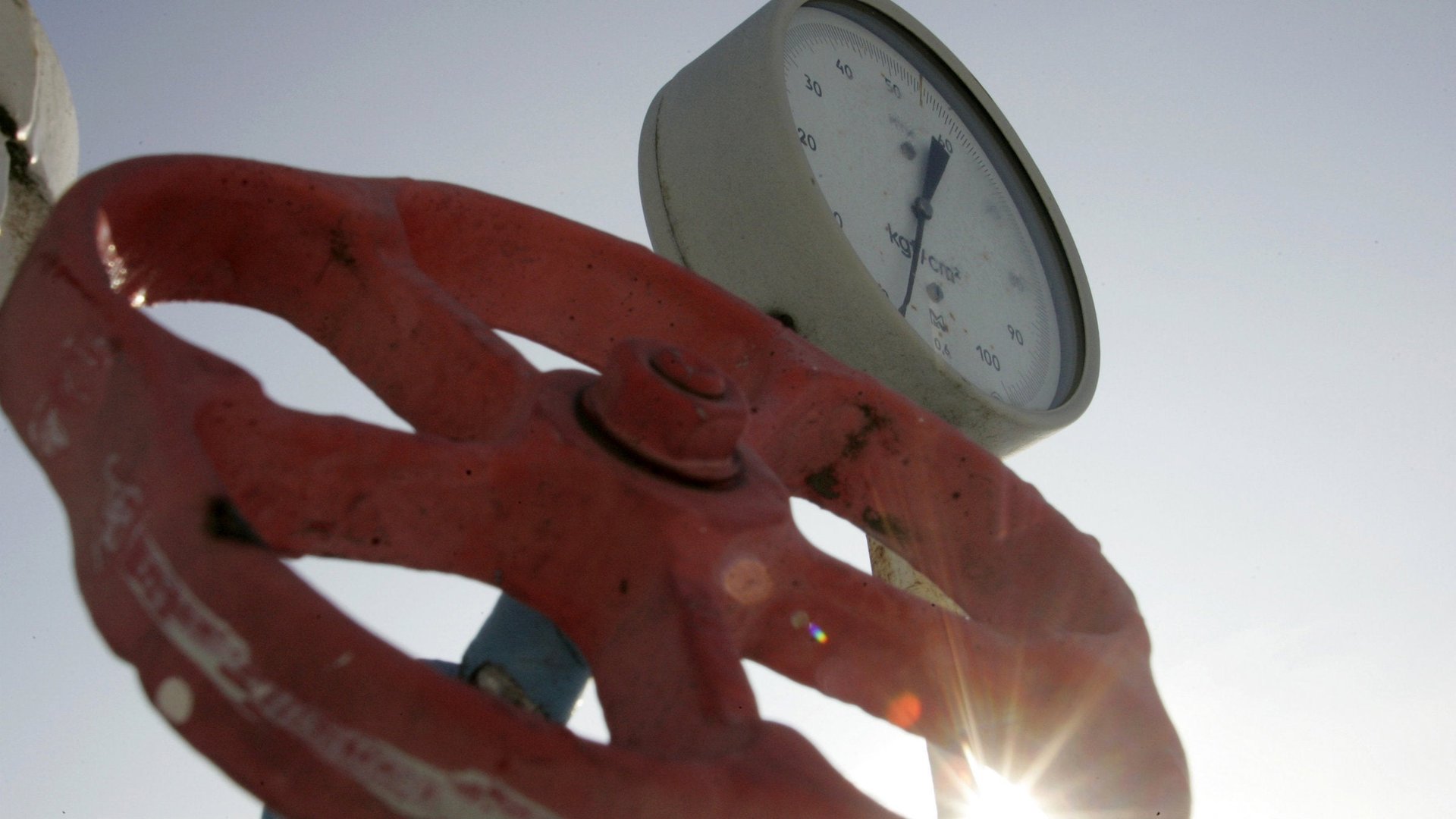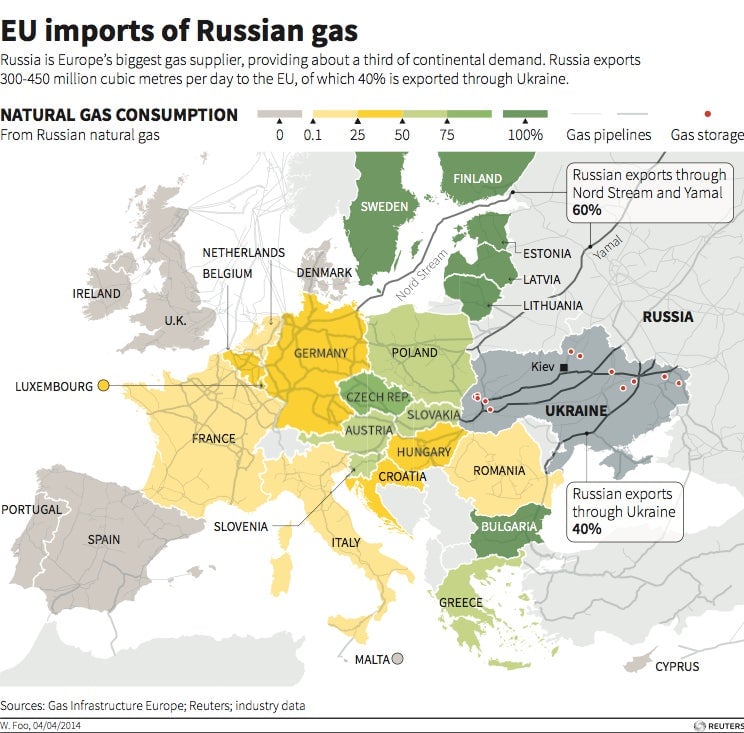When you want to grab Putin’s attention, shut off his gas flow
If you are a small-fry country and want to stir up European anxiety while simultaneously striking at Russian president Vladimir Putin, here’s a clever strategy: Just shut off the Russian energy giant Gazprom’s natural gas spigot–the flow that goes to the rest of Europe. Europe will recall shivering winters a few years ago with no Russian gas, and Putin may reconsider his brinksmanship over gas prices.


If you are a small-fry country and want to stir up European anxiety while simultaneously striking at Russian president Vladimir Putin, here’s a clever strategy: Just shut off the Russian energy giant Gazprom’s natural gas spigot–the flow that goes to the rest of Europe. Europe will recall shivering winters a few years ago with no Russian gas, and Putin may reconsider his brinksmanship over gas prices.
So that is what Ukraine—locked in tense gas-pricing negotiations with a tough-talking Russia—did this morning. The country’s energy minister, Yuri Prodan, said Ukraine has “temporarily stopped” the purchase and storage of new Russian gas while the two countries haggle over the price.
Over the last couple of weeks, Gazprom has raised Ukraine’s gas price by a whopping 80%, the highest it charges anyone and 30% more than the European average. The hike, linked to Ukraine’s ouster of its president and Russia’s subsequent annexation of Crimea, was part of Putin’s tough-guy strategy to dissuade the new Ukrainian government from enacting formal political and military ties with Europe.
The trouble is that, despite Russian efforts to create bypass export pipelines to get its gas to big European customers without disruptions by its neighbors, Ukraine remains a route for half of Russia’s gas destined for the continent.
That creates unease for both Russia and Europe: For Moscow, gas and oil exports comprise half its state budget. Meanwhile six European countries rely on Russia for their entire gas consumption (see map below), and Gazprom accounts for about 30% of the continent’s supply as a whole. Twice since 2006, the gas flow has been turned off in pricing rows between Russia and Ukraine, and no one is eager to risk a new stoppage.

So this is Prodan shouting “Boo!” (a tactic Putin himself has enjoyed using over the years) at both Putin and Europe. For Putin, it serves as a reminder that it is spring, and that Ukraine can easily withstand many months without the Russian gas supply. For Europe, it provides an incentive to join in the pressure on Putin to negotiate reasonably.